Pigs are smart, sociable, playful animals. They even have personality. Like dogs they can be trained to do tricks, wear a leash, use a litter box, respond to their individual names when called. But will they make good house pets? That depends on how large your house is and on how much time and attention you are willing to set aside in the care of your pet pig.
Those cute, cuddly miniature pigs, micro pigs, pocket pigs or teacup pigs sold as pets in most regular pet shops won’t always remain small. Even Paris Hilton’s famous teacup pig, which she bought in 2009, is now over a hundred pounds big. So if you plan on keeping one indoors, make sure you have enough space in the house. Since pigs by nature are territorial, 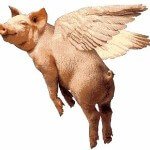
Pigs are omnivorous and will eat almost anything they can find or are given. Unfortunately, they are also prone to getting very obese easily, which in turn can lead to other health issues. So if you want to keep your pet pig fit and trim, you should probably just give it a regular diet of the commercial feed that are sold at the pet shop. These branded specially-formulated mini pig feed are high in fiber but low on calories. You can also supplement your pig’s diet with a variety of fresh fruits and vegetables like apples, carrots, corn and celery. Of course, you should give your pet pig free access to clean drinking water at all times. Your pet pig’s food and water dispensers should always be cleaned thoroughly after every use. You should bring your pet pig to a veterinarian for check-ups and vaccination regularly. A healthy pet mini or teacup pig can be expected to live from 15 to 20 years.
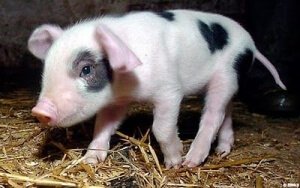 Ideally, pigs kept as house pets should be de-sexed. Otherwise, their normal hormonal changes may make them restless, moody, noisy and stinky every three weeks. Pig pheromones do not smell good to human noses. Pigs that have been raised as pets also constantly crave human attention, often demanding tummy rubs, pats and scratches whenever in the company of their master. This may not be a problem when they were just teacup-sized piglets, but it could be a big one once they become fully-grown 165-pound adult pigs. Pigs are naturally sensitive, and if ignored or rebuked, they can display aggressive behavior or throw temper tantrums.
Ideally, pigs kept as house pets should be de-sexed. Otherwise, their normal hormonal changes may make them restless, moody, noisy and stinky every three weeks. Pig pheromones do not smell good to human noses. Pigs that have been raised as pets also constantly crave human attention, often demanding tummy rubs, pats and scratches whenever in the company of their master. This may not be a problem when they were just teacup-sized piglets, but it could be a big one once they become fully-grown 165-pound adult pigs. Pigs are naturally sensitive, and if ignored or rebuked, they can display aggressive behavior or throw temper tantrums.



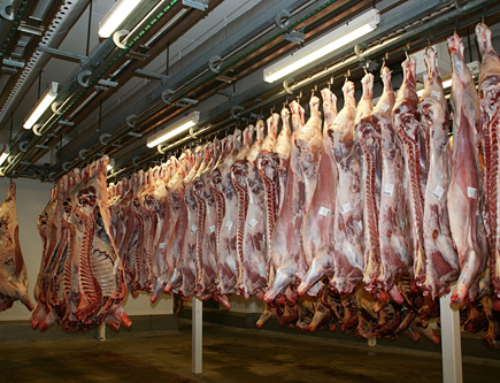
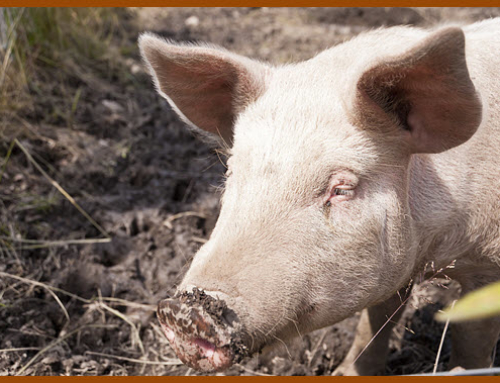
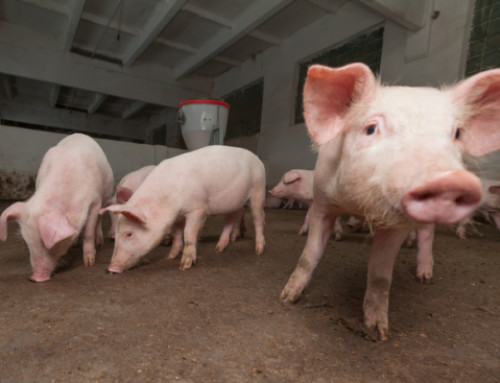
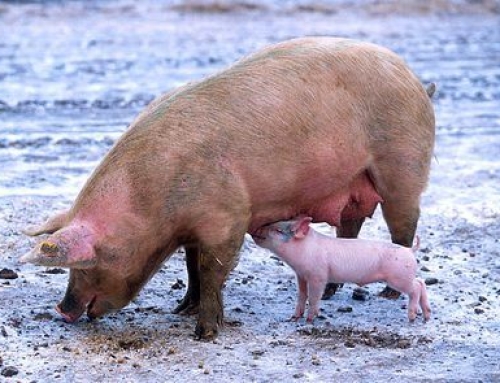
Leave A Comment